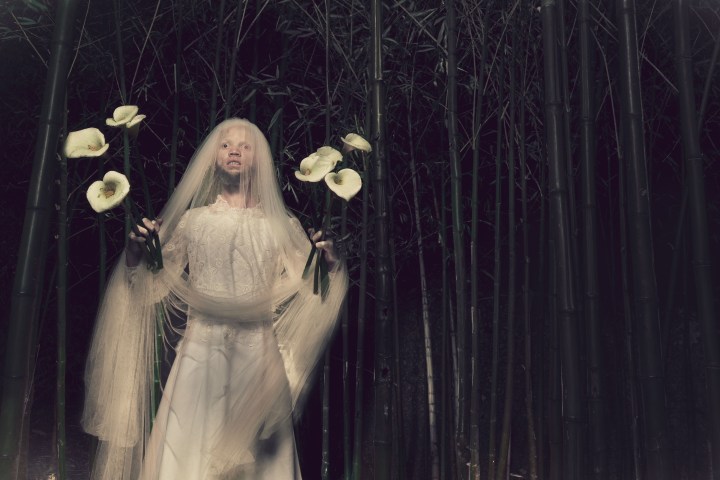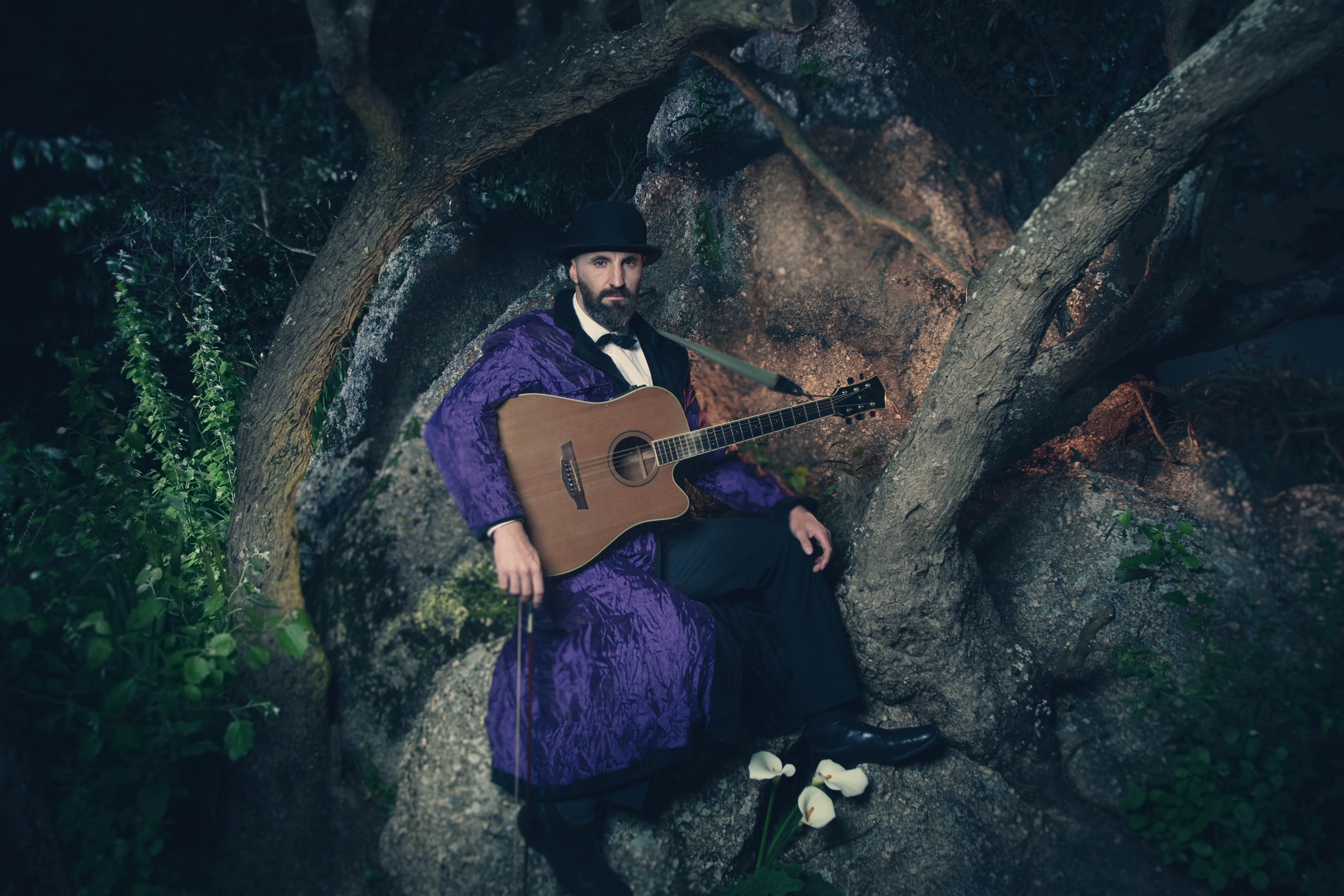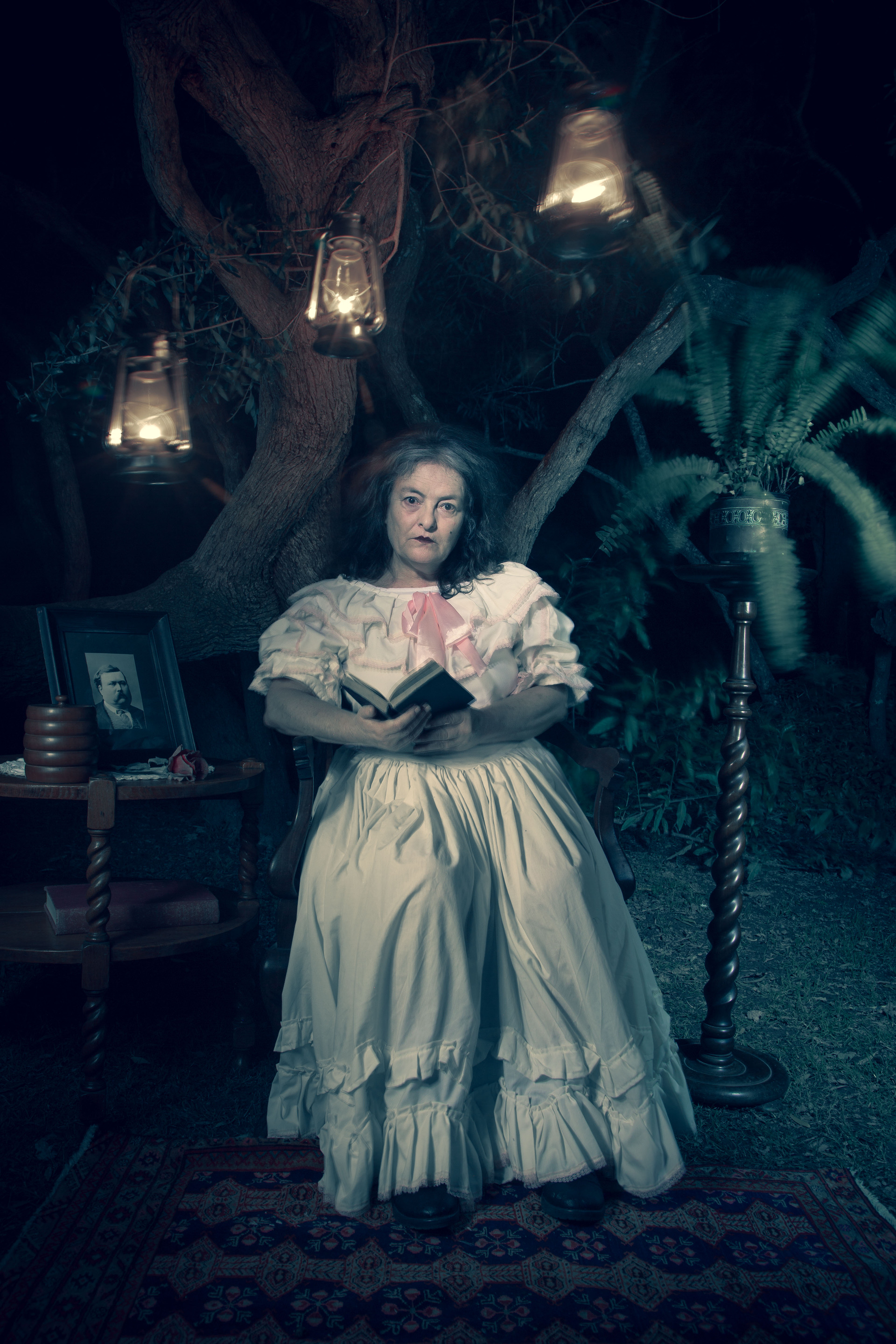THEATRE
Spier’s ‘Garden of Good and Evil’ is no theatrical walk in the park

It’s a wild night out as so-called ‘theatre’ experiences go. Brett Bailey’s ‘Constellations’, now in its fourth year at Spier Wine Farm, is almost a form of anti-theatre, free of the constraints of narrative – a stage without borders, where the perceived divisions between nature, culture and pure experience are eroded.
A car guard dressed in a customary neon waistcoat was calling out to us even before the drumbeats to signal the start of the first performance had been heard. He was in a small clearing in the forest where, with mournful pleading in his voice, he was raving around a campfire, begging us to draw nearer, urging us to not be afraid, to step into his tiny realm, to hear his story, listen to his poetry.
As our group of a dozen or so forest wanderers sat around the fire, “Steve” revealed the inner workings of his mind and connected us with his soul. At times he paused to stare at us, long and hard and deep, and with a kind of urgent intimacy.
Steve was a character enacted by multi-disciplinary performer Blaze Zimba, and when he gazed into my eyes, I found myself melting, as though he were seeing directly into my soul. For some of us in the audience, there was an urge to smile or to look away.
Zimba’s astonishing 15-minute embodiment of Steve is entitled Balderdash and forms part of the fourth edition of theatre-maker Brett Bailey’s Constellations, a performance event held at night in a natural forest setting on the Spier Wine Estate near Stellenbosch.
This year’s iteration is entitled, The Garden of Good and Evil, and as inspiration, Bailey provided each of the eight artist-performers with a short, quirky, slightly ambiguous poem that planted the seeds of a “whimsical, somewhat twisted” character.
We were off to a good start with Zimba’s Steve, having seemingly lost a few marbles so that he now roams the forest like a lunatic, yet nevertheless possessed of a gilded, poetic tongue.
Among many other things, Steve told us that he would die for our cars. He also told us about his minuscule shack and his beloved, about his friends, his hopes and dreams, and about who he is, deep inside.
He wanted us to know the real Steve, the deep-down Steve, the human being behind the idea we have of car guards and itinerants. He wanted us to know the individual beyond the stereotypes, beyond our fears and prejudices, beyond the politics and social dynamics.
Steve shouted and whispered, laughed and cried, wailed and mourned. Steve was unhinged. Steve was also very, very real. And Steve mentioned more than once that life is a kind of inescapable prison. Steve’s story was heartbreaking.
The evening, which had begun with wine and cheese platters before the sun went down, was about shedding the outside world and journeying (on foot and by torchlight) into an alternative realm; an enchanted space where our sole function was to give attention to each of six performers who we, as roving audiences, watched doing their thing that night.
Each 15-minute segment is an intimate, deeply personal window, and a chance to witness just a few of the infinite ways in which humans are capable of expressing themselves.
Whether the language involves spoken words or music, dance or various enigmatic combinations of any of these forms of expression, the point is less to try to understand and more about simply being there to experience.

Brett Bailey. (Photo: Victor Sguassero / KykNet)
Bailey considers himself “an outsider” with an instinct towards utter individuality that has, for around 30 years, pervaded his work as a theatre-maker.
“My earliest memory is of sitting in a field of flowers and butterflies in kindergarten, and looking up at the other lighties playing a game, and wondering what they were getting out of it. After soccer practice one day, I asked my mother: ‘Why can’t we all just have our own ball?’”
It’s precisely that instinctive boyhood yearning for non-conformist creativity that lies at the heart of Constellations.
Instead of a storyline or plot, each performance is entirely up to the individual artist to create. Apart from prompts and feedback, Bailey has left the artists to their own devices, and there’s a similar independence for audience members; the idea being to make discoveries rather than being dictated to.
“Simplistic, narrative-driven work doesn’t correlate with my understanding of life,” Bailey says.
“The referents in my creative process are as much dreams and ritual as they are theatrical vocabulary. I’m far more drawn to the non-rational, and to the material and perspectives that we silence in our societies and selves, than to the trending ideological, academic and rational reductions that dominate.”
This refusal to spoon-feed the audience, and relinquishing the need for beginning-middle-end narrative strictures, is expressed again and again in The Garden of Good and Evil, where, as an observer, you get to piece together your own meaning.
The second of the six pieces we saw was, ironically, entitled Voices. Performed by Gita Galina, it was a mute dance in which a girl (or ghost) stood on tiptoes on a chair and flailed about on dried leaves on the ground, part of her attempt, I presume, to convey some inexpressible anxiety, despite the cat having (perhaps literally) got her tongue.
After watching the girl dancing in her white nightgown, we moved to another part of the forest to listen to the melancholic singing of Moodship, a moniker used by idiosyncratic singer-songwriter Gary Thomas, dressed in a bowler hat and full beard.

Moodship, aka Gary Thomas, in ‘The Garden of Good and Evil’. Image: Nick Aldridge / Brett Bailey
He was seated beneath a tree, with a roaring river for a backdrop and a freshly dug grave nearby. Perhaps he was the gravedigger taking a break from his job to commune with the ghosts and spirits of the forest; perhaps he had risen from the dead. Although he sang recognisable words and phrases and there was distinctly human music emanating from his guitar, which he sometimes played with a violin bow, he seemed nonetheless to be channelling something mournful and ethereal; something from beyond.
“Heart-piercing” is how you might describe it. Or was he communicating in tongues?
Nearby, under another tree, Siphenathi Mayekiso also had a beard, but they were in a wedding dress, so instinctively all bets were off as to the identity (or gender) of the brokenhearted character in a vignette entitled Hanging Out.
There was evidence of a literal hanging – a rope with a noose tied to the tree – and painful laments about someone who had never tasted love, and it was heartbreaking and visceral and seemed to connect with ancient spirits and with the ancestors, and to conjure feelings deeper than mere mortals could ever properly explain.
Another clearing and this time a seemingly sweet old lady who might have been preparing to tuck the grandchildren into bed, but instead turned out to be actress Megan Choritz reading an increasingly macabre and twisted tale that went from sweet fairytale to something akin to a feminist revenge romp in a matter of moments.

Megan Choritz in ‘The Garden of Good and Evil’. Image: Nick Aldridge / Brett Bailey
Choritz, so masterful at seducing the listener with her careful diction and unexpected phrasing, created moment after moment of pitch-black humour as she read aloud to her husband, Bob. Thing is, Bob was nothing but ashes in a jar and – once you hear that story read out loud – you’ll have no doubt who put him there.
Our final vignette for the evening was music and singing by venerable Gugulethu-born musician, Sky Dladla, who took us on a meditative journey with her honey-sweet voice. She accompanied herself with gentle, uncommon music played on a nyunga nyunga mbira and an uhadi, both seldom-heard indigenous instruments that Dladla has championed. What she created felt like a sort of portal into another dimension.
Indeed, that is what you feel when you step into The Garden of Good and Evil: the nature-enfolded space by the river at Spier is a kind of alternative reality that simmers below the surface; a parallel plane where stories bubble to the surface; where characters come alive, become real.
It’s a kind of “through the looking glass” adventure where, instead of “make-believe” theatricality, Bailey wants us to experience a very real energy being liberated.
There is no telling how you will respond to what you encounter. You might, on one night, go on at least half a dozen very different emotional and intellectual journeys. You might not understand; you might want to kick yourself for not “getting it”; rack your brain to make sense of it, or force yourself to create some kind of meaning out of the disparate pieces.
The point is not to fret, though, but to instead let the night take you somewhere beyond understanding. There is no logic. All reactions and responses are valid. Bailey says it starts with the very basic human ritual of “sitting around a fire at night, in nature, within a circle of people, watching the flames, listening”.
That experience, he says, “connects us across millennia to our primal ancestors as stories are told and memories shared”.
For a period of time, it is a chance to step out of the mundane world, to “reflect on the vastness of time and space that enfolds us” in order to “have our souls enriched and our imaginations expanded. (Or not).”
If nothing else, there will be magic in the air on the night.
Something primal and simple and raw and strange. Even if you decide to ignore the humans doing the performing, there will be the background sound of the river, the millions of insects chirruping and frogs croaking as if participating in a vast primordial orchestra, along with the rustling leaves, the stir of a breeze, perhaps the cool night air’s nip.
It is wondrous, gazing at the flickering fires around which the performances play out, letting yourself get lost in time and space. And discovering the wonder of simply being out and about on planet Earth, realising that nature and culture are not, in fact, two distinct things.
But that they are both part of what it means to be human. DM
The Garden of Good and Evil is at Spier Wine Farm on Friday and Saturday nights until 18 November. Tickets via WebTickets.



















 Become an Insider
Become an Insider
Not to be missed. Bret Bailey is a genius who revolutionised South African theatre here and beyond. Facilitating three dimensional dreams for the lucky viewers of his other worldly creations allowing us to breathe deeply the starry mists and magic of humanity and life .